Double vision
She was searching for something to contribute to a professor’s birthday symposium when she started noticing images in the protein structures he had published: a birthday present, then a cat bringing a birthday cake. She made a simple animation of the images using PowerPoint so that she could contribute something to the celebration. “It was not very artistic in the beginning,” she recalls.
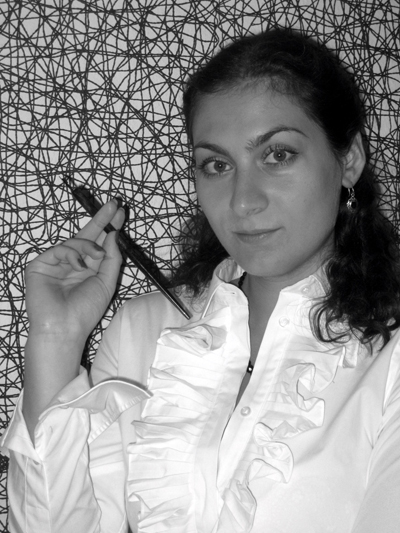
Most biochemists look to the Protein Data Bank for structural data, but Maja Klevanski looks to it for artistic inspiration. Klevanski, a graduate student at the University of Heidelberg, first got the idea of translating the ribbon models of protein structures into art when she was preparing her diploma thesis at Harvard.
But over time, her method has become more elaborate. To find her images, she rotates protein structures until she begins to see something interesting and then begins a painstaking process of drawing over the structure, redrawing and tweaking the rotation until the image in her mind is fully realized on the page.
Last year, a collage of her work titled “Nature playing chess” reached the top 10 in the illustration category of the 2012 International Science and Engineering Visualization Challenge. She says she hopes to publish a book one day that combines her art with the science behind it. “But, first of all, I have to finish my Ph.D.!” she says.
You can find more of her work at her website, where she also takes requests to re-imagine your favorite protein: .
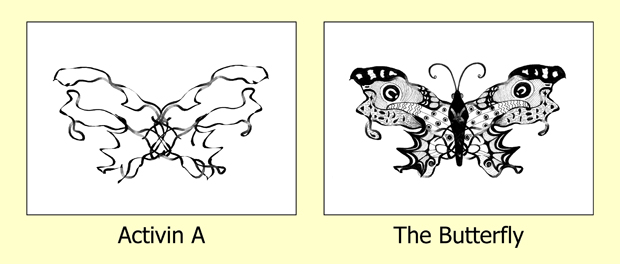
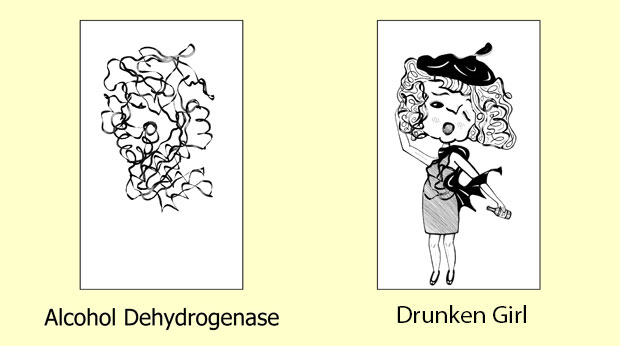
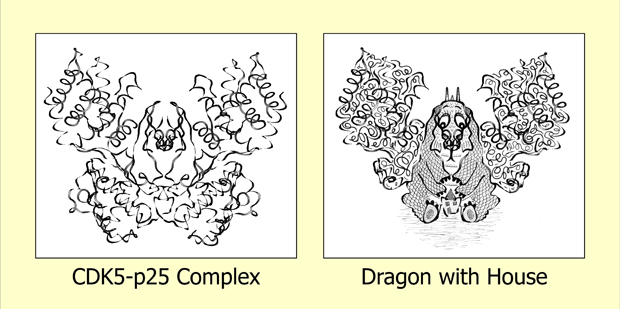
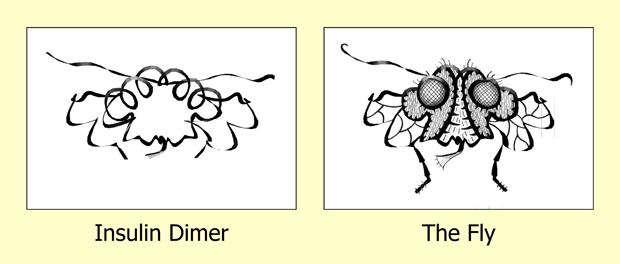
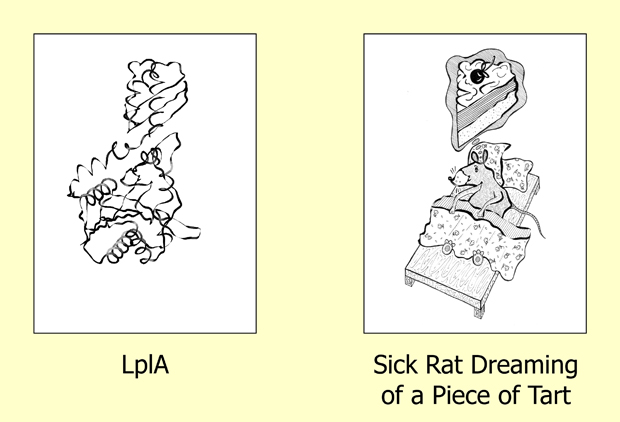
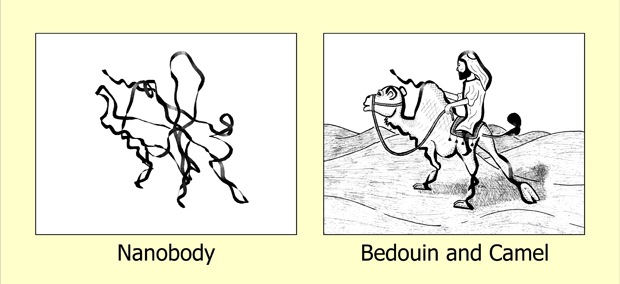
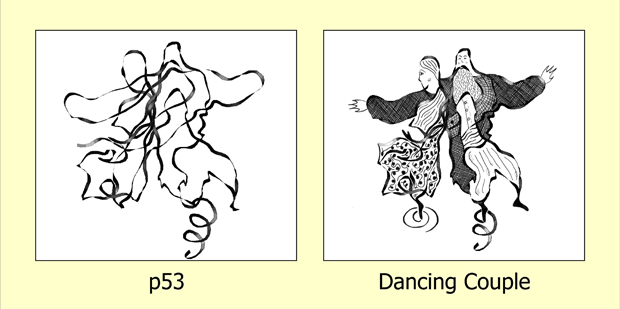
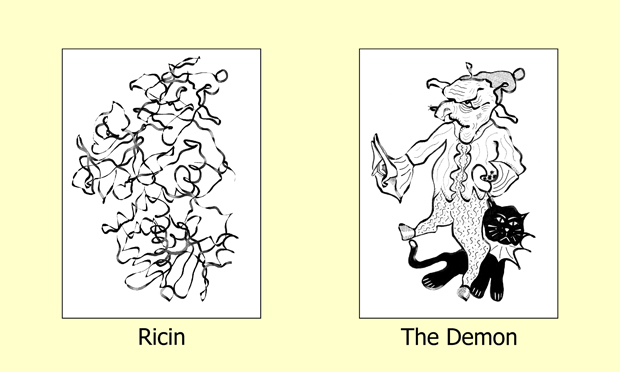
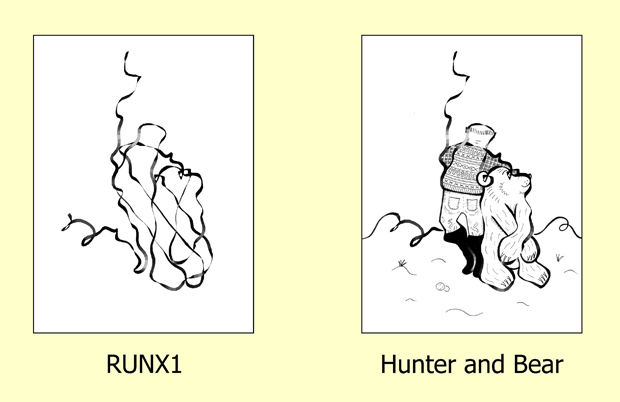
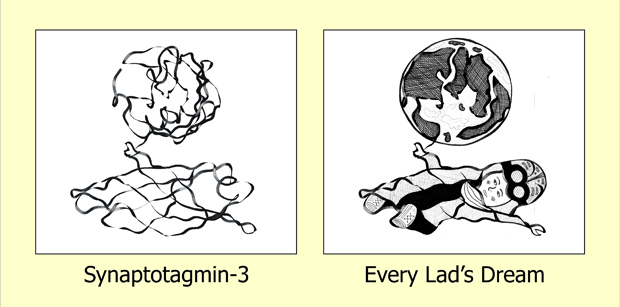
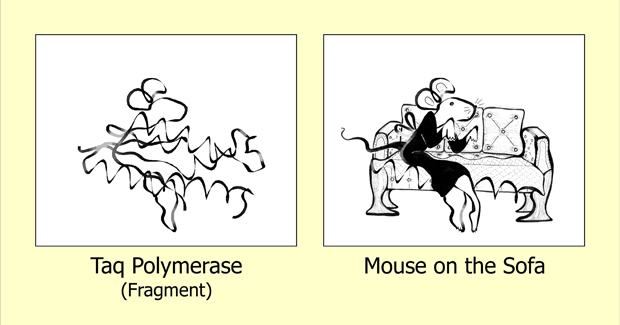
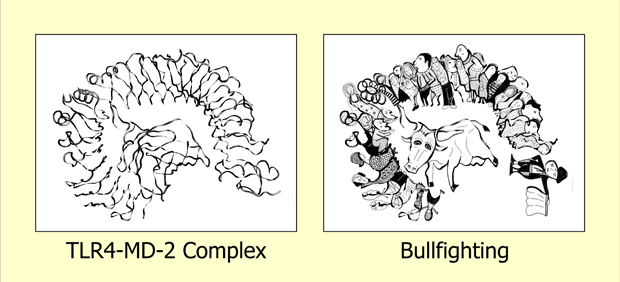
Enjoy reading ASBMB Today?
Become a member to receive the print edition four times a year and the digital edition monthly.
Learn moreGet the latest from ASBMB Today
Enter your email address, and we’ll send you a weekly email with recent articles, interviews and more.
Latest in People
People highlights or most popular articles

In memoriam: David Baltimore
He was a Nobel laureate, president emeritus at the California Institute of Technology and an ASBMB member for more than 50 years.

In memoriam: Stuart A. Kornfeld
He was a pioneer in glycobiology and was a member of the Â鶹´«Ã½É«ÇéƬ and Â鶹´«Ã½É«ÇéƬ Biology for more than 50 years.

Top reviewers at ASBMB journals
Editors recognize the heavy-lifters and rising stars during Peer Review Week.

Cedeño–Rosario and Kaweesa win research award
The award honors outstanding early-career scientists studying cancer, infectious disease and basic science.

ASBMB names 2026 award winners
Check out their lectures at the annual meeting in March in the Washington, D.C., metro area.

Peer through a window to the future of science
Aaron Hoskins of the University of Wisconsin–Madison and Sandra Gabelli of Merck, co-chairs of the 2026 ASBMB annual meeting, to be held March 7–10, explain how this gathering will inspire new ideas and drive progress in molecular life sciences.

